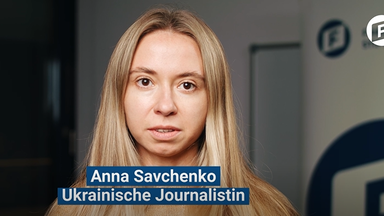International Press Freedom Day
Stifled Voices: The Plight of Afghan Journalists on World Press Day

World Press Day, celebrated every year on May 3rd, is a day to reflect on the importance of press freedom and the challenges faced by journalists worldwide. Press freedom has always been challenging in Afghanistan, but it has become even more difficult since the Taliban takeover in August 2021. Afghan journalists, particularly women, face significant obstacles to reporting the truth and providing objective coverage of events. The press has been heavily restricted, and many journalists have fled the country or gone into hiding. The Taliban has a history of attacking journalists and media outlets during the two decades of democracy (2001–2021) in Afghanistan. Their return to power has sparked fear among those who value freedom of the press.
One of the biggest challenges facing journalists in Afghanistan is safety. With the Taliban in power, journalists’ risk being targeted for their reporting. The Taliban has a record of attacking journalists who report on their activities, and they have already detained and beaten several journalists since taking control. In addition, there are reports of journalists targeted by the Taliban for their past work with foreign media outlets.
Censorship as a challenge for media professionals
Another challenge for Afghan journalists is censorship. The Taliban has imposed strict controls on the media, including bans on reporting specific topics and requirements for approval before stories can be published. Journalists who do not comply with these restrictions risk being punished or even arrested.
The Taliban's return to power has also created challenges for female journalists. Under the previous government, women could work in journalism and media, but the Taliban has a history of oppressing women and restricting their access to education and employment. Female journalists now face even more tremendous obstacles in pursuing their careers, and many have been forced to flee the country.
Afghan journalists have been targeted in Afghanistan and neighbouring countries where they have sought refuge. In Pakistan, for example, many Afghans journalists fear being arrested and deported. Some journalists have been forced to hide and operate anonymously due to the risk of being targeted by the Taliban or other extremist groups. Most have trouble extending their visas while waiting for their case approvals in other European and American countries.
Financial and logistical support
What can be done to support Afghan journalists during this challenging time? One essential step is to provide financial and logistical support to those who have fled the country. Many journalists require necessities such as shelter and food, and organizations can help provide these essentials. In addition, providing training and resources to journalists still in Afghanistan can help them continue to report on the situation despite the restrictions they face. The safety of Afghan journalists inside the country matters at this point, and the organizations that could provide these kinds of support should consider indirect methods. For instance, if you send resources into Afghanistan, they shall be done by third parties in a country that could safely deliver the help.
It is also vital for the international community to pressure the Taliban to respect freedom of the press. Governments and organizations can speak out against the Taliban's restrictions on the media and demand that journalists be allowed to work without fear of reprisal. This pressure can help create a safer environment for journalists in Afghanistan and encourage the Taliban to respect human rights and the freedom of the press.
Raising awareness worldwide
In addition, providing a platform for Afghan journalists to share their stories and perspectives can help raise awareness of their challenges. This support can include publishing articles and videos by Afghan journalists and inviting them to speak at events and conferences. By amplifying the voices of Afghan journalists, we can help ensure that their stories are heard, and their work is recognized.
Finally, it is essential to support the development of independent media in Afghanistan. Independent media can help hold the government and other powerful actors accountable and provide a voice for marginalized communities. This support includes providing resources for new media outlets and supporting the growth of existing ones.
In conclusion, on World Press Day, it is essential to remember journalists' vital role in promoting transparency and accountability and to stand in solidarity with those facing immense challenges in carrying out their work. Afghan journalists can be a bold example of this situation.
Freshta Hemmati, an Afghan journalist and CEO of the Afghanistan Journalists' Support Organization (AJSO).
Olga Romanova: "Die Bedrohungen gegen den Journalismus gehören dazu"

Existiert der unabhängige Journalismus noch in Russland? Für die seit fünf Jahren im Exil lebende Journalistin Olga Romanova steht fest, dass jedes Jahr mehr russische Journalistinnen und Journalisten dazukommen und arbeiten – trotz des großen Risikos. Auch auf Olga Romanova würde in ihrer Heimat eine Strafe wegen Verrats am Vaterland warten. Wie man die Bedrohungen gegen den freien Journalismus bekämpft, erklärt sie im Interview.
Tatsiana: "Wenn ich nach Belarus zurückkehre, warten fünf Jahre Gefängnis auf mich"

Nach Einschätzungen der UN hat sich die Menschenrechtslage in Belarus dramatisch verschlechtert. Demnach befinden sich mindestens 1400 politische Gefangene in Haft. Auch die belarussische Journalistin Tatsiana floh aufgrund des Drucks der Regierung auf Journalisten 2021 aus dem Land. Im Interview berichtet sie, wie sie die Unterstützung der internationalen Organisationen und Stiftungen für unabhängige Journalisten und Journalistinnen bewertet.
Dmytro Ladvishchenko: "Menschen in und außerhalb der Ukraine müssen weiterhin Informationen erhalten"

Am 24. Februar 2022 war der ukrainische Journalist Dmytro Ladvishchenko gerade an der Grenze zu Rumänien, als der Beschuss Kiews mit Raketen begann. Er entschied sich, die Ukraine zu verlassen. Im Interview berichtet er über die ersten Tage des Krieges und wie er zusammen mit seiner Frau eine Anlaufstelle für Flüchtlinge gründete, wo er vor allem Frauen bei der Unterbringung half. Den aktuellen Zustand der ukrainischen Medien bewertet er als sehr schlecht - daher ist für ihn die Unterstützung des Westens für unabhängige Journalistinnen und Journalisten in der Ukraine essenziell.
Anna Savchenko: "Die einzige Bedrohung für Medienschaffende in der Ukraine ist der Krieg"

Am 24. Februar 2022 entschied die ukrainische Journalistin Anna Savchenko an die Grenze zu fahren und ihre Heimat zu verlassen. Seitdem lebt sie in Deutschland und hofft auf das Ende des Krieges. Von ihrem Land erwartet sie eine große Phase der Entwicklung und des Aufblühens – trotz all des Grauens, dass die ukrainische Bevölkerung erleiden muss. Für Anna Savchenko steht fest: Nur gemeinsam ist es möglich, ein freies, unabhängigeres, stärkeres und demokratischeres Land aufzubauen.
Marta Petrovskaja: "Ich musste mich zwischen meinem Beruf oder meinem Heimatland entscheiden"

Die Situation in Belarus spitzt sich immer weiter zu. Die Journalistin Marta Petrovskaya arbeitete bis 2021 für „tut.by“, eines der größten Medienportale in Belarus. Doch nachdem die Website gesperrt wurde, fanden sowohl Durchsuchungen in den Büros als auch in den Wohnungen vieler Redakteure statt. Auch Marta wurde festgenommen und befand sich in U-Haft. Sie entschied sich, ihrem Beruf weiter nachzugehen und war gezwungen, ihr Heimatland zu verlassen. Jetzt arbeitet sie als unabhängige Journalistin in Berlin. Über ihre Erlebnisse spricht sie mit uns im Interview.
